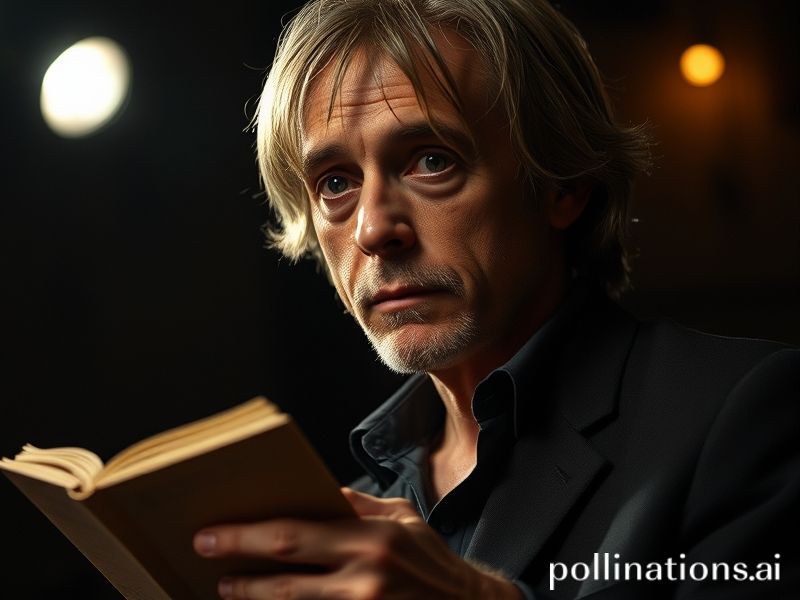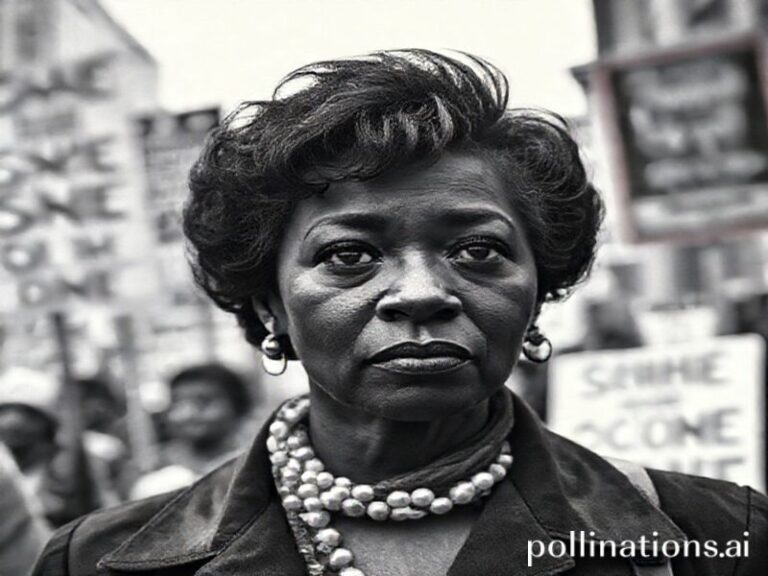Jeremy Irons, Globalized Villain: How One Man’s Velvet Voice Became the Soundtrack to Worldwide Decay
Jeremy Irons: the last of the gentleman villains, now globe-trotting in the twilight of the monocled misanthrope, has become an unlikely barometer for how the world prefers its decay—slow, articulate, and wrapped in cashmere. From the marbled corridors of Brideshead to the fluorescent purgatory of the International Criminal Court in The Hague (Netflix’s upcoming limited series, naturally), Irons has spent four decades teaching audiences across six continents that evil, when delivered with perfect diction, is almost respectable. In an age when strongmen tweet in all-caps at 3 a.m., his brand of velvet menace feels almost quaint—like receiving a handwritten death threat on engraved stationery.
Start in Cairo, where last winter the 75-year-old actor arrived to film a spy thriller financed by Emirati oil, Egyptian tax rebates, and German guilt money. Locals queued for selfies not because of Dead Ringers or The Mission, but because WhatsApp rumors insisted he was reprising Scar from The Lion King in live-action form. The rumor was false, yet the city’s souvenir hawkers still sold bootleg T-shirts showing Irons in feline drag above pyramids that looked suspiciously like Vegas. Globalization, it turns out, is just a fever dream of intellectual-property violations.
Shift to Davos, where earlier this year Irons moderated a panel titled “Sustainable Villainy: Can ESG principles coexist with cinematic malevolence?” Attendees—tech bros in Patagonia vests, Saudi PR flacks, and one confused Greta Thunberg hologram—listened politely as Irons quoted Milton between sips of glacier water flown in from Patagonia. The consensus among the assembled elite was that if you’re going to destroy the planet, you might as well do it with impeccable vowels. A hedge-fund manager was overheard asking whether Irons would record voicemail greetings for a mere $50,000 a pop. The actor’s agent later confirmed the price had gone up—Brexit surcharge.
In Beijing, streaming giant iQiyi recently added Margin Call to its heavily curated library, but only after digitally erasing every champagne bottle lest the proletariat glimpse unapproved luxury. Chinese censors left Irons untouched, apparently concluding that predatory capitalism is less offensive when articulated by someone who looks like a bankrupt Anglican bishop. The film trended for 48 hours, spawning a thousand think pieces on whether Western financial collapse could be replicated domestically with “Chinese characteristics.” Meanwhile, Irons collected his licensing fee in yuan, converted it to euros, and donated the sum to a charity that plants trees in the Amazon—irony being the one natural resource still uncapped by OPEC.
South American audiences know him best as the pope who may or may not have murdered his predecessor in Paolo Sorrentino’s The New Pope. In Chile, devotees of the show have started an actual church dedicated to Lenny Belardo, the chain-smoking, kangaroo-petting pontiff Irons portrayed with messianic ennui. Their Vatican is a repurposed disco in Valparaíso; communion wafers are Ritz crackers, sacramental wine is boxed Carménère. When asked for comment, Irons issued a one-line statement: “I prefer my schisms with a twist of lime.” Ticket sales to the faithful have underwritten three soup kitchens, proving that even blasphemy can be ESG-compliant if marketed correctly.
Back home in County Cork—because of course he has a castle with a collapsing roof—Irons has become an accidental Brexit refugee magnet. British actors seeking EU passports now squat in his folly towers, rehearsing monologues from Richard III while applying for Irish citizenship by descent, real or imagined. The castle’s Wi-Fi password is reportedly “ReesMoggIsASockPuppet,” which doubles as the estate’s only security system. Local councillors, sensing soft power, petitioned the EU to designate the grounds a UNESCO site: “Heritage of Elegant Decadence.” Brussels is considering it, pending a feasibility study on whether despair can be monetized under the Common Agricultural Policy.
The broader significance? In an era when villains scream in 280 characters, Irons whispers across borders, reminding us that true menace comes with a passport full of stamps and a conscience kept in the same drawer as the cufflinks he never wears. He is globalization’s undertaker—dressed by Savile Row, paid in multiple currencies, and serenely unsurprised that the world’s loudest collapses arrive with subtitles. If civilization ends tomorrow, at least it will do so with impeccable Received Pronunciation.







